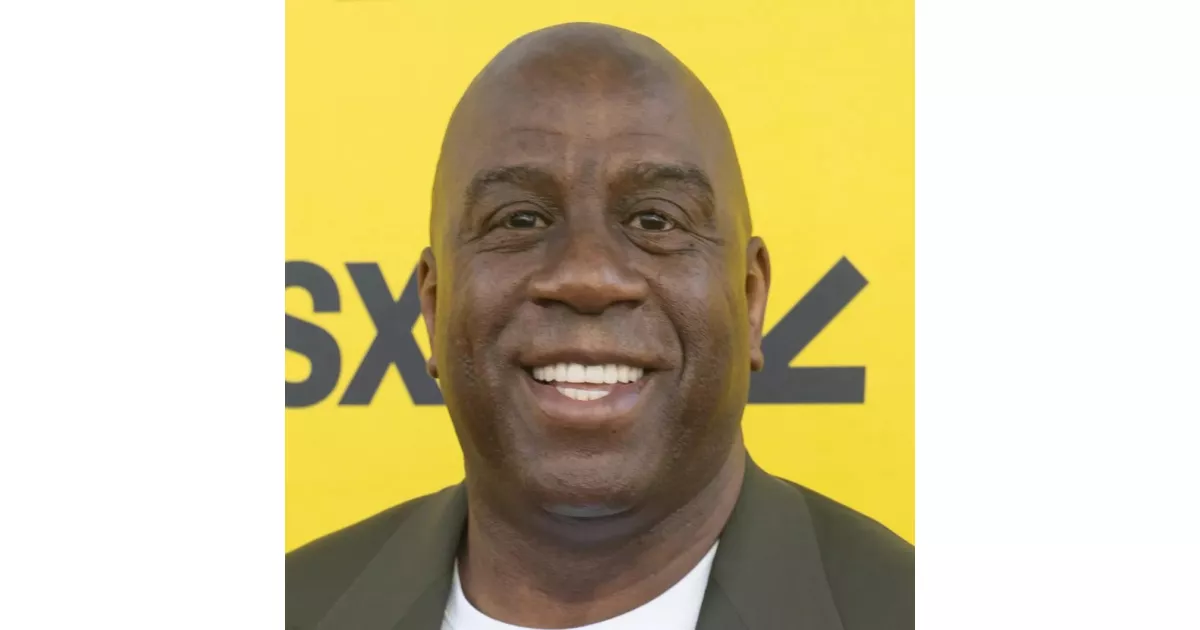Earvin "Magic" Johnson Jr. is a celebrated American businessman and former professional basketball player, widely considered the greatest point guard ever. Drafted first overall by the Los Angeles Lakers in 1979 after winning a national championship with Michigan State, he led the Lakers to five NBA championships during the "Showtime" era. Johnson's career faced an abrupt halt in 1991 when he announced he had contracted HIV, leading to his initial retirement. Despite this, he made several comebacks, including winning the All-Star MVP in 1992 and playing 32 games in 1996, before ultimately retiring for good.
August 14, 1959: Magic Johnson's Birth
On August 14, 1959, Earvin "Magic" Johnson Jr. was born. He would later become a professional basketball player and businessman.
1969: Celtics consecutive titles in NBA Finals
In the 1987-88 season, Lakers coach Pat Riley publicly promised that they would defend the NBA title, even though no team had won consecutive titles since the Celtics did so in the 1969 NBA Finals.
1977: Selection to the McDonald's All-American Team
In 1977, Magic Johnson was named to the inaugural McDonald's All-American team, which played in the Capital Classic.
1979: Drafted into the NBA
In 1979, Jerry Buss drafted Magic Johnson with the #1 pick in the NBA draft.
1979: NCAA Finals Against Larry Bird
In 1979, Magic Johnson faced Larry Bird in the NCAA finals, beginning their well-documented friendship and rivalry.
1979: Drafted First Overall by the Los Angeles Lakers
In 1979, Magic Johnson was drafted first overall by the Los Angeles Lakers. He played alongside Kareem Abdul-Jabbar.
1979: NBA Draft and Championship with Michigan State
In 1979, Magic Johnson won a national championship with the Michigan State Spartans and was then selected first overall in the NBA draft by the Los Angeles Lakers.
1980: Start of the 1980-81 Season
Early in the 1980-81 season, Johnson had a heated dispute with Westhead, who Johnson said made the Lakers "slow" and "predictable".
1980: NBA Finals Victory and Finals MVP Award
In 1980, the Lakers reached the NBA Finals and defeated the Philadelphia 76ers. Magic Johnson, as a rookie, played multiple positions in Game 6 due to Abdul-Jabbar's injury, leading the Lakers to victory and earning himself the NBA Finals MVP award.
1981: Birth of Son, Andre Johnson
In 1981, Magic Johnson first fathered a son, Andre Johnson, who was born to Melissa Mitchell.
1981: 25-Year Contract and Dispute with Westhead
In 1981, Magic Johnson signed a 25-year, $25 million contract with the Lakers. He also had a heated dispute with coach Paul Westhead, leading to Westhead's firing.
1981: First Round Playoff Upset
In 1981, after returning from a knee injury, Magic Johnson and the Lakers were upset by the Houston Rockets in the first round of the playoffs after Johnson missed a last-second shot.
1982: Start of Double-Double Seasons
During the 1982-83 NBA season, Magic Johnson began his first of nine consecutive double-double seasons.
1982: NBA Championship and Finals MVP Award
In 1982, Magic Johnson and the Lakers defeated the Philadelphia 76ers in the NBA Finals, with Johnson winning his second NBA Finals MVP award.
1982: Named Finals MVP
In 1982, Magic Johnson was named the NBA Finals MVP, averaging just 16.2 points, the lowest average of any Finals MVP award recipient in the three-point shot era.
1984: Friendship Begins
In 1984, Johnson and Bird became close friends during the filming of a Converse shoe advertisement that depicted them as enemies, beginning a long-lasting friendship.
1984: NBA Finals
In 1984, the Lakers and Celtics met in the NBA Finals as part of a series of matchups between the two teams.
1984: Start of 1984-85 Regular Season
In the 1984-85 regular season, Magic Johnson averaged 18.3 points, 12.6 assists, and 6.2 rebounds per game.
1985: Johnson creates "A Midsummer Night's Magic" charity event
In 1985, Johnson created "A Midsummer Night's Magic", an annual charity event benefiting the United Negro College Fund.
1985: NBA Finals Victory Over the Celtics
In 1985, Magic Johnson and the Lakers defeated the Boston Celtics in the NBA Finals, a series that Johnson and Abdul-Jabbar described as the highlight of their careers.
1985: Double-Double Season
In the 1985-86 NBA season, Magic Johnson again averaged a double-double.
1987: Lakers public promise to defend NBA title
Before the 1987-88 NBA season, Lakers coach Pat Riley publicly promised that they would defend the NBA title.
1987: NBA Finals
In 1987, the Lakers and Celtics met again in the NBA Finals as part of a series of matchups between the two teams.
1988: Lakers win NBA Championship
In 1988, Magic Johnson and the Lakers defeated the Detroit Pistons in the NBA Finals, securing Johnson's fifth and final NBA championship. Despite missing 10 games with a groin injury in the regular season, Johnson played a pivotal role in the championship series.
1988: Johnson earns MVP award
In the 1988-89 NBA season, Johnson's performance earned him his second MVP award.
1989: Lakers reach NBA finals
In 1989, the Lakers reached the NBA Finals but were swept by the Pistons after Johnson sustained a hamstring injury in Game 2.
1989: Johnson wins third MVP award
In the 1989–90 NBA season, Johnson won his third MVP award after averaging 22.3 points, 11.5 assists, and 6.6 rebounds per game.
1990: PepsiCo Bottling Interest
In 1990, Magic Johnson and Earl Graves Sr. acquired a significant stake in the Washington, D.C. PepsiCo bottling operation, establishing it as the largest minority-owned facility within the company in the United States.
1990: Lakers lose to Phoenix Suns in Western Conference semifinals
In the 1989-90 NBA season, the Lakers were eliminated by the Phoenix Suns in the Western Conference semifinals, marking their earliest playoff exit in nine years.
October 1991: Johnson plays in McDonald's Open in Paris, France
In October 1991, Johnson played with the Lakers in the McDonald's Open in Paris, France, and was named the tournament MVP after helping the Lakers win gold.
November 7, 1991: Johnson announces retirement after testing positive for HIV
On November 7, 1991, Magic Johnson publicly announced his immediate retirement after testing positive for HIV. He pledged to dedicate his life to battling the disease.
November 1991: Creation of the Magic Johnson Foundation
In November 1991, after announcing his HIV infection, Magic Johnson established the Magic Johnson Foundation to combat HIV, later expanding its goals to other charitable causes.
1991: Formation of Magic Johnson All-Stars
After leaving the NBA in 1991, Magic Johnson formed the Magic Johnson All-Stars, a barnstorming team that traveled around the world playing exhibition games.
1991: Buss Supported Johnson After HIV Diagnosis
In 1991, Jerry Buss supported Magic Johnson after he revealed his diagnosis of HIV, and he never hesitated to keep Johnson close to the organization.
1991: First Retirement Announcement
In 1991, Magic Johnson abruptly retired from the NBA after announcing that he had contracted HIV.
1991: Johnson founds the Magic Johnson Foundation
In 1991, Magic Johnson founded the Magic Johnson Foundation.
1991: Married Earlitha "Cookie" Kelly
In 1991, Magic Johnson married Earlitha "Cookie" Kelly in a small wedding in Lansing.
1991: Lakers reach NBA Finals against the Chicago Bulls
In the 1990-91 NBA season, the Lakers reached the 1991 NBA Finals and faced the Chicago Bulls, led by Michael Jordan. Despite Johnson's efforts, the Bulls won the series 4-1, marking the last championship series of Johnson's career.
1992: Johnson aborted comeback
After the Lakers lost to the Houston Rockets in the first round of the playoffs in 1996, Johnson retired permanently, saying, "I am going out on my terms, something I couldn't say when I aborted a comeback in 1992."
1992: Johnson announces comeback attempt, then retires again
Before the 1992-93 NBA season, Johnson announced his intention to stage an NBA comeback but retired again before the start of the regular season due to controversy over his return.
1992: Received $14 Million Contract
In 1992, Jerry Buss gave Magic Johnson a contract that paid him $14 million a year, as payback for all the years he was not the league's highest-paid player.
1992: Appears at Bird's Retirement Ceremony
In 1992, Magic Johnson appeared at Larry Bird's retirement ceremony, describing Bird as a "friend forever".
1992: Appointment to the National Commission on AIDS
In 1992, Magic Johnson joined the National Commission on AIDS, appointed by members of Congress and the Bush Administration. He left after eight months due to disagreements with the White House.
1992: All-Star Game Return and Second Retirement
In 1992, Magic Johnson returned to play in the All-Star Game, winning the All-Star MVP Award. He retired again after protests from fellow players.
1992: Publication of Autobiography
In 1992, Magic Johnson's autobiography, "Magic Johnson: My Life" was published.
1992: Johnson plays in NBA All-Star Game and wins MVP
In 1992, despite his retirement, Magic Johnson was voted as a starter for the NBA All-Star Game and won the All-Star MVP award after recording 25 points, 9 assists, and 5 rebounds.
1992: "A Midsummer Night's Magic" raises over $1.3 million for UNCF
The 1992 "A Midsummer Night's Magic" event, held after Johnson's appearance in the 1992 Olympics, raised over $1.3 million for the United Negro College Fund.
1993: Johnson returns to the Lakers as coach
Near the end of the 1993-94 NBA season, Johnson became the coach for the Lakers, replacing Randy Pfund.
June 1994: Johnson purchases a share of the Lakers team
In June 1994, after resigning as coach, Johnson purchased a 5% share of the Lakers.
1994: Buss sold Johnson a stake in the team
In 1994, Jerry Buss sold Magic Johnson a stake in the Lakers.
1994: Johnson forms the Magic Johnson All-Stars
In 1994, Johnson formed the Magic Johnson All-Stars, a barnstorming team composed of former NBA and college players.
1994: Jud Heathcote Stepped Down as Coach
In 1994, Jud Heathcote stepped down as coach of the Spartans.
1994: Took Head Coaching Position with Lakers
In 1994, Magic Johnson agreed to take the head coaching position with the Lakers at Jerry Buss' request.
1994: Lakers Ownership
In 1994, Magic Johnson became a minority owner of the Lakers, reportedly investing over $10 million. He also assumed the role of team vice president.
June 8, 1995: Jud Heathcote All-Star Tribute Game
On June 8, 1995, Magic Johnson returned to the Breslin Center to play in the Jud Heathcote All-Star Tribute Game, where he led all scorers with 39 points.
1995: Johnson begins intense workouts to help his fight against HIV
During his retirement period, Johnson began intense workouts to help his fight against HIV. He focused on raising his bench press and increasing his weight.
1995: Johnson plays in celebrity game to honor coach Jud Heathcoate
In 1995, Johnson played in a celebrity game to honor coach Jud Heathcoate.
1995: Adopted Daughter Elisa
In 1995, Magic Johnson and his wife, Cookie, adopted a daughter, Elisa.
January 29, 1996: Johnson officially returns to the Lakers as a player
On January 29, 1996, Johnson officially returned to the Lakers, playing his first game the following day against the Golden State Warriors.
1996: Johnson retires permanently from the NBA
After the Lakers lost to the Houston Rockets in the first round of the playoffs, Johnson retired permanently from the NBA in 1996.
1996: Magic Johnson All-Stars amassed record
By the time he returned to the Lakers in 1996, the Magic Johnson All-Stars had amassed a record of 55-0.
1996: Selection to the 50 Greatest Players in NBA History
In 1996, Magic Johnson was honored as one of the 50 Greatest Players in NBA History.
1996: Named One of the 50 Greatest Players of All Time
In 1996, Magic Johnson was voted as one of the 50 Greatest Players of All Time by the NBA.
1996: Final NBA Return
In 1996, at the age of 36, Magic Johnson returned to play 32 games for the Lakers before retiring for the third and final time.
1997: Signed Deal with Fox
In 1997, Magic Johnson's production company, Magic Johnson Entertainment, signed a deal with Fox.
1998: Hosted "The Magic Hour"
In 1998, Magic Johnson hosted a late night talk show on the Fox network called "The Magic Hour", but the show was canceled after two months because of low ratings.
1999: Joins M7 Borås
In 1999, Magic Johnson joined the Swedish squad M7 Borås, now known as 'Borås Basket', and was undefeated in five games with the team. He also became a co-owner of the club. However, the project failed after one season, and the club was forced into reconstruction. He later joined the Danish team The Great Danes.
1999: Speaker at UN World AIDS Day Conference
In 1999, Magic Johnson was the main speaker for the United Nations (UN) World AIDS Day Conference and has served as a United Nations Messenger of Peace.
2000: Renamed Record Label to Magic Johnson Music
In 2000, Magic Johnson renamed his record label to Magic Johnson Music when he signed a joint venture with MCA. Magic Johnson Music signed R&B artist Avant as its first act.
November 2001: Johnson plays against Michigan State with the All-Stars
In November 2001, Johnson played with the All-Stars against his alma mater, Michigan State, in his hometown of Lansing for the first time in 22 years.
November 1, 2002: Johnson plays a second exhibition game against Michigan State
On November 1, 2002, Johnson returned to play a second exhibition game against Michigan State, playing with the Canberra Cannons of Australia's National Basketball League.
2002: Enshrinement into the Naismith Memorial Basketball Hall of Fame
In 2002, Magic Johnson was inducted into the Naismith Memorial Basketball Hall of Fame for his individual career.
2002: Inducted into Naismith Memorial Basketball Hall of Fame
In 2002, Magic Johnson was inducted into the Naismith Memorial Basketball Hall of Fame.
2004: Johnson's HIV announcement named a memorable moment by ESPN
In 2004, Johnson's HIV announcement was recognized as ESPN's seventh-most memorable moment of the previous 25 years.
2004: Sold Magic Johnson Theaters
In 2004, Magic Johnson and his partner Ken Lombard sold Magic Johnson Theaters to Loews Cineplex Entertainment.
2005: End of "A Midsummer Night's Magic" charity event
In 2005, Johnson's yearly charity event, "A Midsummer Night's Magic", came to an end after twenty years.
2005: Bought the Williamsburgh Savings Bank Tower
In 2005, Magic Johnson was part of a syndicate that bought the Williamsburgh Savings Bank Tower for $71 million.
2006: Rated Greatest Point Guard of All Time
In 2006, ESPN.com rated Magic Johnson the greatest point guard of all time.
2006: Created Sodexo-Magic
In 2006, Magic Johnson created a contract food service with Sodexo USA called Sodexo-Magic.
2006: Endorsement for Governor of California
In 2006, Magic Johnson publicly endorsed Phil Angelides for Governor of California.
2007: Converted the Williamsburgh Savings Bank Tower
In 2007, Magic Johnson converted the Williamsburgh Savings Bank Tower into luxury condominiums.
2008: Joined ESPN's NBA Countdown
In 2008, Magic Johnson became a studio analyst for ESPN's NBA Countdown.
2008: Support for Hillary Clinton's Presidential Campaign
In 2008, Magic Johnson supported Hillary Clinton during her presidential campaign.
2009: Collaborates on "When the Game Was Ours"
In 2009, Magic Johnson and Larry Bird collaborated with journalist Jackie MacMullan on a non-fiction book titled "When the Game Was Ours", detailing their on-court rivalry and friendship.
October 2010: Sale of Lakers Ownership Stake
In October 2010, Johnson sold his ownership stake in the Lakers to Patrick Soon-Shiong, while continuing to serve as an unpaid vice president of the team.
2010: Endorsement for Barbara Boxer
In 2010, Magic Johnson endorsed Barbara Boxer in her race for re-election to the U.S. Senate.
2010: Second Enshrinement into the Naismith Memorial Basketball Hall of Fame
In 2010, Magic Johnson received his second enshrinement into the Naismith Memorial Basketball Hall of Fame as a member of the Dream Team.
2010: Sold Remaining Interest in Starbucks Stores
In 2010, Magic Johnson sold his remaining interest in the Starbucks stores back to the company, ending a successful twelve-year partnership.
2010: Closed First Magic Johnson Theater
In 2010, The first Magic Johnson Theater located in the Baldwin Hills Crenshaw Plaza, closed.
August 2011: Johnson regrets retiring after HIV diagnosis
In August 2011, Johnson stated in an interview that he regretted retiring after being diagnosed with HIV.
2011: Re-opened First Magic Johnson Theater
In 2011, The first Magic Johnson Theater located in the Baldwin Hills Crenshaw Plaza, re-opened as Rave Cinema 15.
2011: Frontline Interview
In a 2011 interview with Frontline, Magic Johnson recalled AIDS activist Elizabeth Glaser convincing him to go public about his HIV diagnosis and promising to become the face of the disease to help and educate people.
January 2012: Joined Bid for Dodgers Ownership
In January 2012, Magic Johnson joined with Guggenheim Partners and Stan Kasten in a bid for ownership of the Los Angeles Dodgers baseball team.
March 2012: Won proceedings to buy the Dodgers
In March 2012, Magic Johnson's ownership group was announced as the winner of the proceedings to buy the Los Angeles Dodgers for $2 billion. The Johnson-led group, which also includes movie executive Peter Guber.
2012: Launched Aspire TV Network
In 2012, Magic Johnson launched a cable TV network called Aspire, featuring programming targeted at black audiences.
2013: Support for Wendy Greuel
In 2013, Magic Johnson endorsed and appeared in campaign ads for Wendy Greuel, who was an unsuccessful candidate for Los Angeles mayor.
2013: Death of Jerry Buss
In 2013, Magic Johnson's mentor and close friend, Lakers owner Jerry Buss, passed away from cancer. Johnson spent five hours visiting Buss at the hospital just a few months before his death.
2014: Sold Stake in Dragons
In 2014, Magic Johnson and Peter Guber sold their stake in the Dayton Dragons. In 2014, Johnson was also involved in buying the Los Angeles Sparks of the WNBA and was named one of ESPNW's Impact 25.
2015: Acquisition of EquiTrust Life Insurance Company
In 2015, Magic Johnson finalized his acquisition of a "majority, controlling interest" in EquiTrust Life Insurance Company, which manages $14.5 billion in annuities, life insurance, and other financial products.
2015: Endorsement for Hillary Clinton's Second Presidential Campaign
In 2015, Magic Johnson once again endorsed Hillary Clinton in her second presidential campaign.
August 22, 2016: Fundraiser for Hillary Clinton
On August 22, 2016, Magic Johnson hosted a fundraiser for Hillary Clinton's presidential campaign.
2016: Won WNBA Championship
In 2016, Magic Johnson won the WNBA championship as the owner of the Los Angeles Sparks.
February 2017: Return to the Lakers as Advisor
In February 2017, Magic Johnson returned to the Lakers as an advisor to Jeanie Buss.
February 21, 2017: Replaced as President of Basketball Operations
On February 21, 2017, Magic Johnson replaced Jim Buss as the president of basketball operations for the Los Angeles Lakers.
2018: Los Angeles FC Began Play
In 2018, Magic Johnson's Major League Soccer (MLS) expansion franchise, Los Angeles FC, began play.
2018: Signed Lebron James
In 2018, the Lakers reached an agreement with free agent LeBron James on a four-year contract.
April 9, 2019: Resigned from Lakers
On April 9, 2019, Magic Johnson resigned from the Lakers, citing his desire to return to his role as an NBA ambassador.
2019: Receives NBA Lifetime Achievement Award
In 2019, Magic Johnson received the NBA Lifetime Achievement Award, shared with Larry Bird.
2020: Dodgers win the World Series
In 2020, the Dodgers, co-owned by Magic Johnson, won the World Series.
2021: Selected to NBA 75th Anniversary Team
In 2021, Magic Johnson was selected to the NBA 75th Anniversary Team.
2022: Failed Bid on the Denver Broncos
In 2022, Magic Johnson joined Josh Harris on an unsuccessful bid on the Denver Broncos.
2022: Ranked 5th Greatest Player in NBA History
In 2022, The Athletic ranked Magic Johnson as the 5th greatest player in NBA history, and the highest ranked point guard.
2023: Became a Billionaire
According to Forbes, Magic Johnson became a billionaire in 2023, making him one of the richest celebrities.
2023: Invested in Washington Commanders
In 2023, Magic Johnson invested $240 million in a group headed by Josh Harris that purchased the Washington Commanders of the National Football League (NFL) for $6.05 billion.
September 2024: Joined the Ownership Group of Washington Spirit
In September 2024, Magic Johnson joined the ownership group of the Washington Spirit of the National Women's Soccer League (NWSL).
2024: Dodgers win the World Series
In 2024, the Dodgers, co-owned by Magic Johnson, won the World Series.
May 2025: Estimated Net Worth
As of May 2025, Magic Johnson's net worth is estimated at US$1.5 billion by Forbes.
October 8, 2025: Named Grand Marshal of the Rose Parade
On October 8, 2025, the Pasadena Tournament of Roses Association named Magic Johnson the Grand Marshal of the 2026 Rose Parade.
2025: Equivalent Value of 1981 Contract
In 2025, Magic Johnson's 1981 contract with the Lakers, which was a 25-year, $25 million deal, is equivalent to $89,000,000.
2025: Dodgers win the World Series
In 2025, the Dodgers, co-owned by Magic Johnson, won the World Series.
2026: Rose Parade and Rose Bowl Participation
In 2026, Magic Johnson presided over the Rose Parade and participated in the pre-game ceremony at the 2026 Rose Bowl.
Mentioned in this timeline

Basketball is a team sport played on a rectangular court...

Michael Jordan widely considered one of basketball's greatest players significantly...
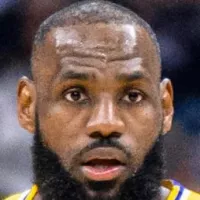
LeBron James nicknamed King James is an American professional basketball...
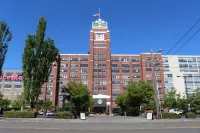
Starbucks is an American multinational coffeehouse chain established in Seattle...

Barack Obama the th U S President - was the...
McDonald's is an American multinational fast food restaurant chain As...
Trending
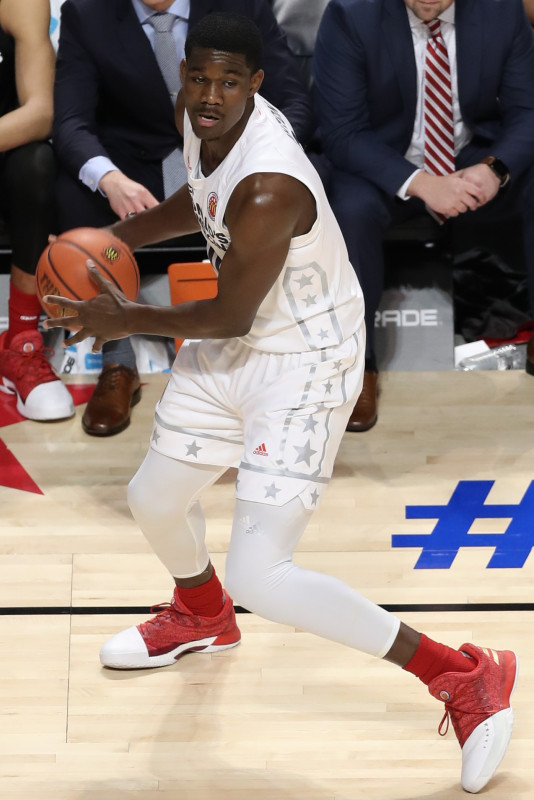
40 minutes ago Lakers Seek to Unlock Ayton's Greatness While Hayes Shines, Exposing Unwanted Truth.
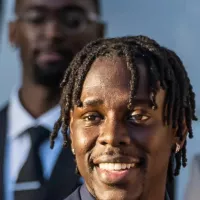
40 minutes ago Jrue Holiday NBA DFS picks, lineups, and player prop bets for February 24.
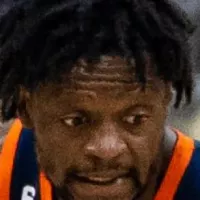
41 minutes ago Julius Randle's Injury Update: Chris Finch Comments, Randle Scores 18 in Loss
41 minutes ago Jaden McDaniels excels as scorer, boosting Timberwolves with underrated skills this year.
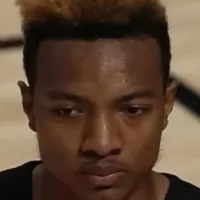
41 minutes ago NBA Southeast Notes Discuss Trades, Desmond Bane's Performance, and Wendell Carter Jr.
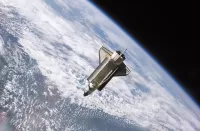
2 hours ago Space Force Upgrades, Battle Management, and Role in Raids Spark Resource Push
Popular

Jesse Jackson is an American civil rights activist politician and...

Susan Rice is an American diplomat and public official prominent...

Barack Obama the th U S President - was the...

Michael Joseph Jackson the King of Pop was a highly...

Bernie Sanders is a prominent American politician currently serving as...

XXXTentacion born Jahseh Dwayne Ricardo Onfroy was a controversial yet...
